Our visitors guide explores where to go on holiday in Devon, including the best places to stay and eat, wildlife and the county's best walks.
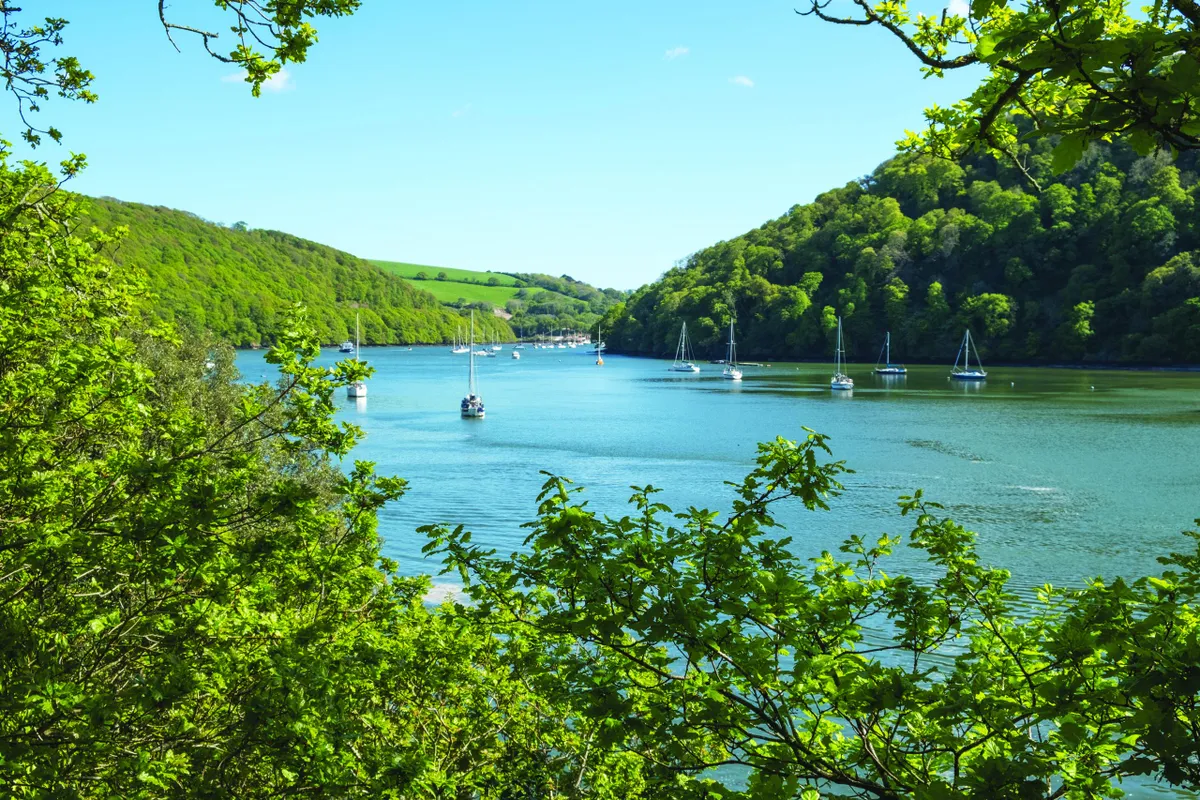
Why visit Devon?
Devon is as green as they come. Call it lush, verdant or emerald, the countryside here holds some of the UK’s most gorgeous rural scenery, from oaky creeks and rolling farmland to craggy clifftops and wild national parks. It has wetlands, woodlands, stunning sandy beaches and no less than five Areas of Outstanding Natural Beauty.
But the word ‘green’ carries multiple connotations these days, and this is also a county packed with options for sustainable holidays, old-fashioned outings, natural encounters and volunteering opportunities for the eco-conscious countryside lover. From getting back to basics to sampling wholesome, farm-fresh food, there’s nowhere quite like it.
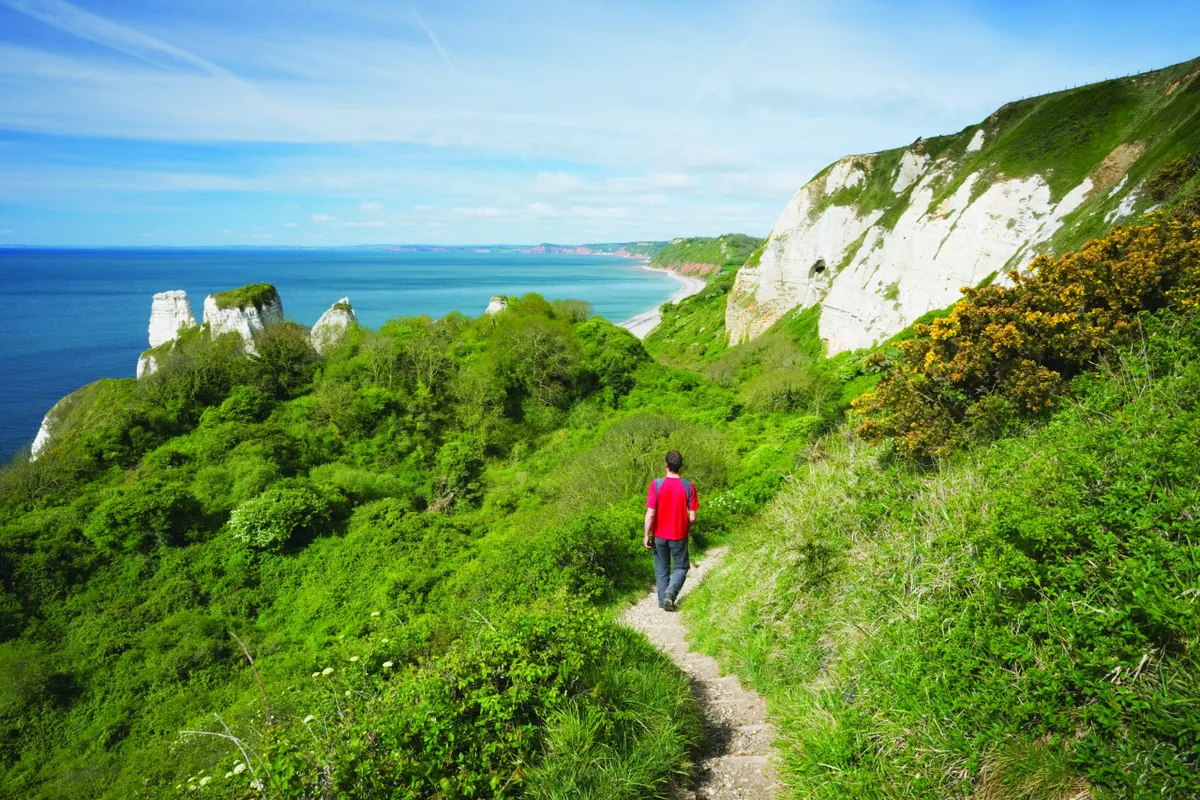
Devon’s beaches, hills and rivers have always calmed the soul – when writing Tarka the Otter almost a century ago, Henry Williamson used the book to evoke “the golden-green of spring”, “sun-plashy ripples” and “willows… green and waving” – and a trip to today’s county still gives the chance to appreciate the region in any number of low-impact ways.
What wildlife can be found in Devon?
Devon’s flora and fauna are a case in point. On the sweeping north coast, the natural dune system of Braunton Burrows, on the Taw-Torridge Estuary, is a fine example of the kind of wildlife hotspot in which Devon excels. Here, 33 species of butterfly have been recorded on the flower-rich grasslands, as well as breeding birds, such as meadow pipits and wheatears. Close by, Horsey Island is – as of November 2019 – the newest of the county’s 57 nature reserves, offering possible sightings of glossy ibis, osprey and spoonbills.
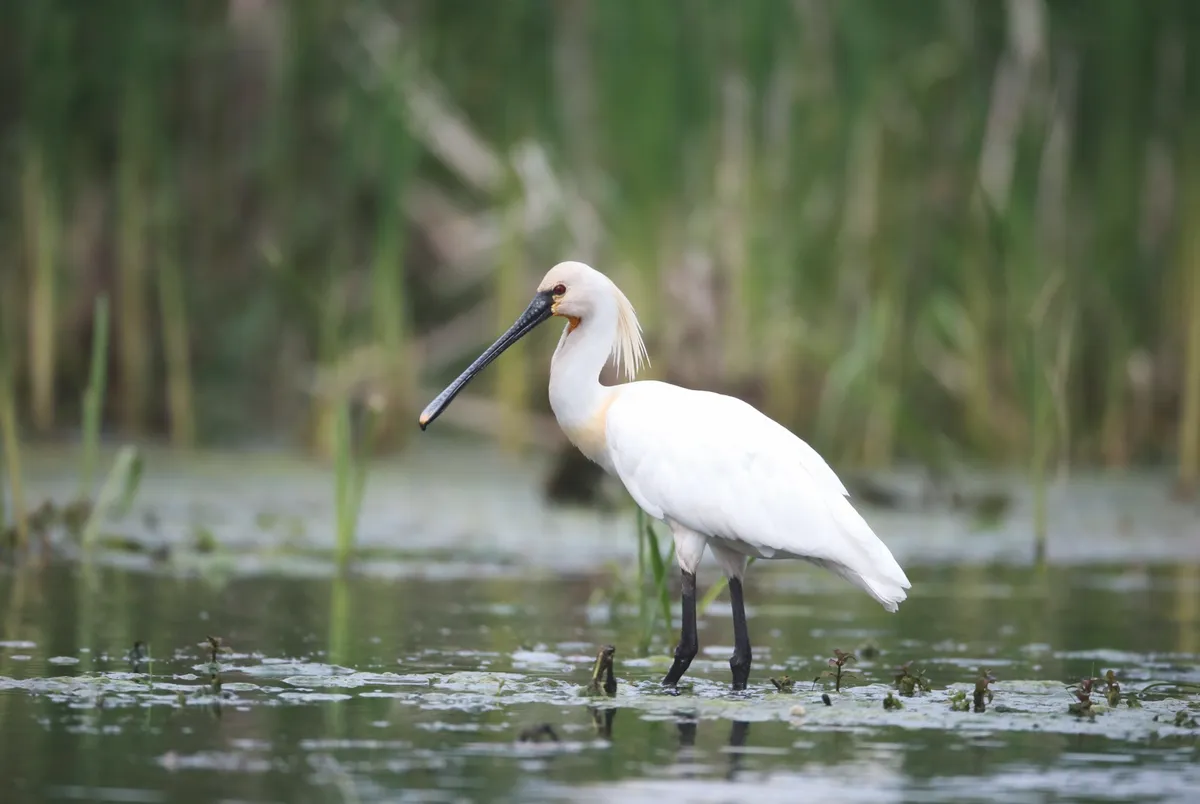
This same area is where you’ll find the 32-mile off-road stretch of the Tarka Trail, one of the longest continuous cycle paths in the UK. Loosely exploring the home territory of Henry Williamson’s fictional Tarka the otter, it offers the chance to spot everything from kingfishers and waders to – with patience – otters. A short distance offshore, lovely Lundy Island is home to seals, Sika deer, ponies and, between April and July, nesting seabirds that include guillemots, razorbills and puffins. Over the same period, you might even sight basking sharks.
The south coast offers just as much for wildlife lovers. Wembury Marine Centre has colourful, educational displays and organises regular rockpool safaris over the summer months. This is small fry, however, when compared to Plymouth’s National Marine Aquarium, where the large area dedicated to Britain’s coasts will teach even the most seasoned seafarers a thing or two about our marine life. This is the UK’s largest aquarium.
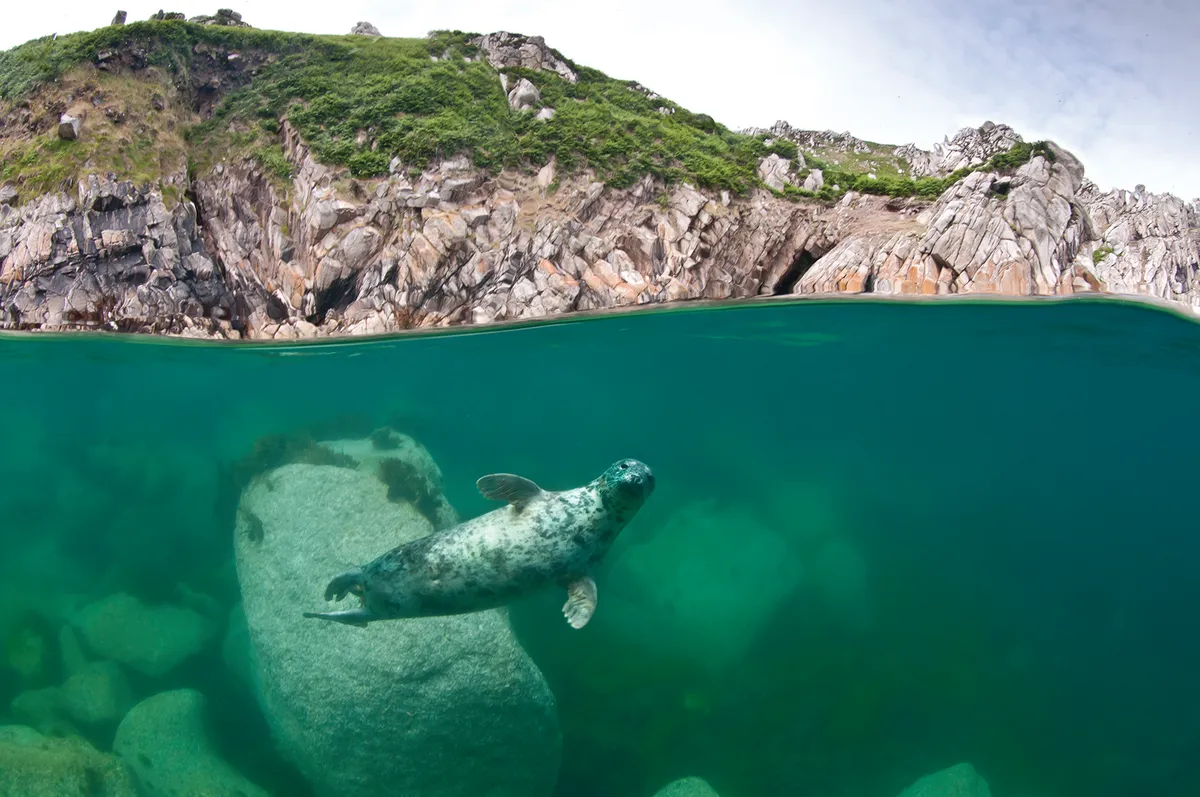
Further east, the Dart Estuary is a joy to explore, whether by boat or on foot. Seals, otters and even dolphins are visitors to this winding, forest-flanked waterway, its greenery so abundant that it once doubled on screen as the Amazon rainforest. Special mention also goes to the lower stretches of the River Otter, near Sidmouth, where the unlikely wildlife stars are several families of wild beavers. Spotting these toothy mammals on a warm evening is a rare thrill. Exactly who introduced them remains a well-kept secret.
Related articles
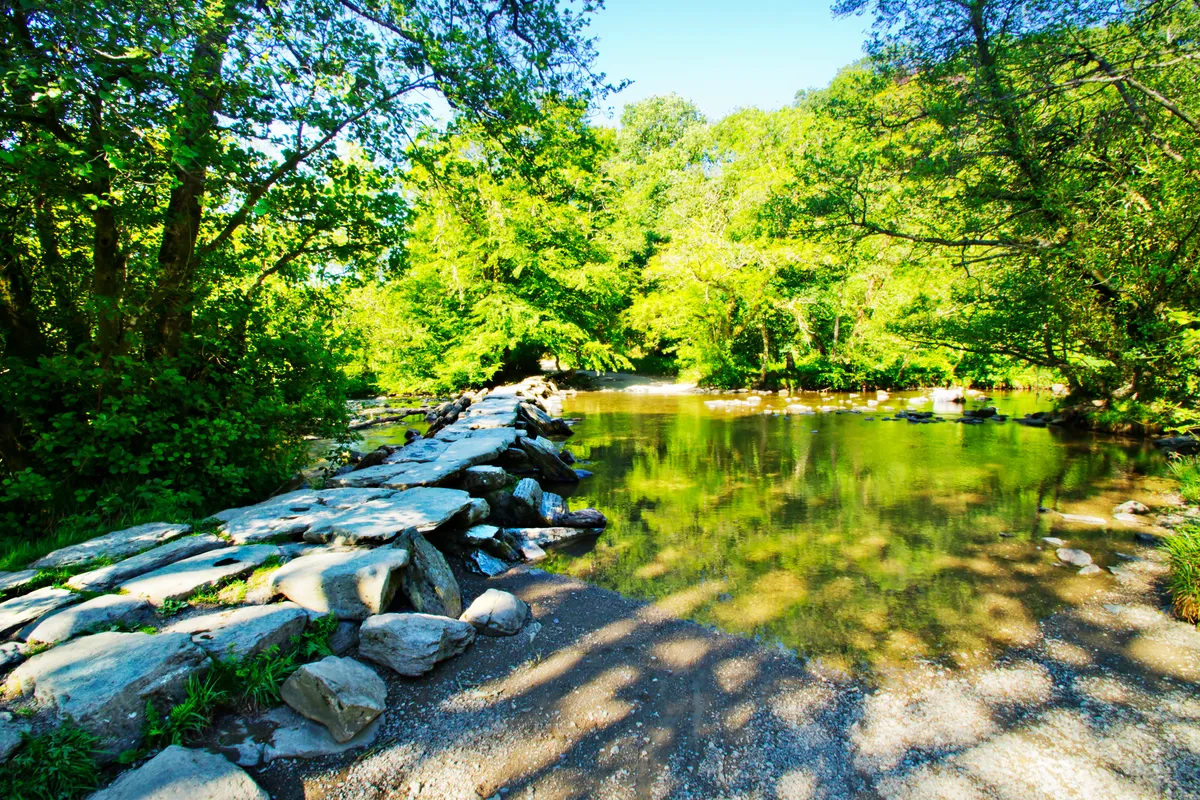
What is the county flag of Devon?
The county flag of Devon is no ancient ensign. Unfurled for the first time in 2003, it was the result of a campaign to create a symbol of Devonian pride, which saw different ideas put to an online poll. The winning design is now a familiar one, featuring a black-trimmed white cross against a dominant green background.
These colours are signifiers: black for the high moorland of Dartmoor and Exmoor, white for the salt-spray of the coastline, green for the swelling, numberless hills. The flag may not have history, but it has meaning.
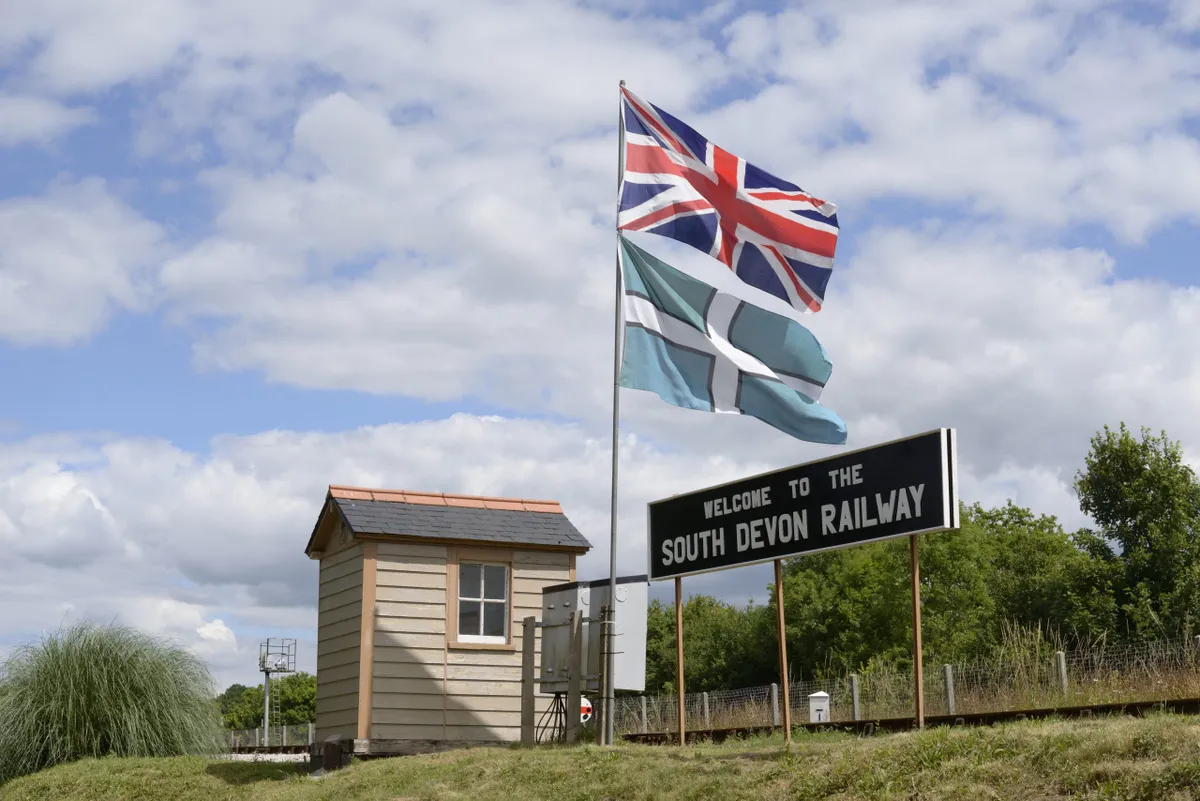
Can you wild camp in Devon?
Not far away, the brooding expanse of Dartmoor National Park is a world unto its own. Dartmoor Nature Tours runs guided visits year-round, ranging from butterfly walks – the park is a bastion for fritillary species – to dusk walks where you might see badgers, glow-worms and nightjars. Dartmoor also has the distinction of being the only place in England where you can wild-camp (legally, at least). Large swathes of the park are open to campers, and pitching up among the heathland and boulders is a magical experience.
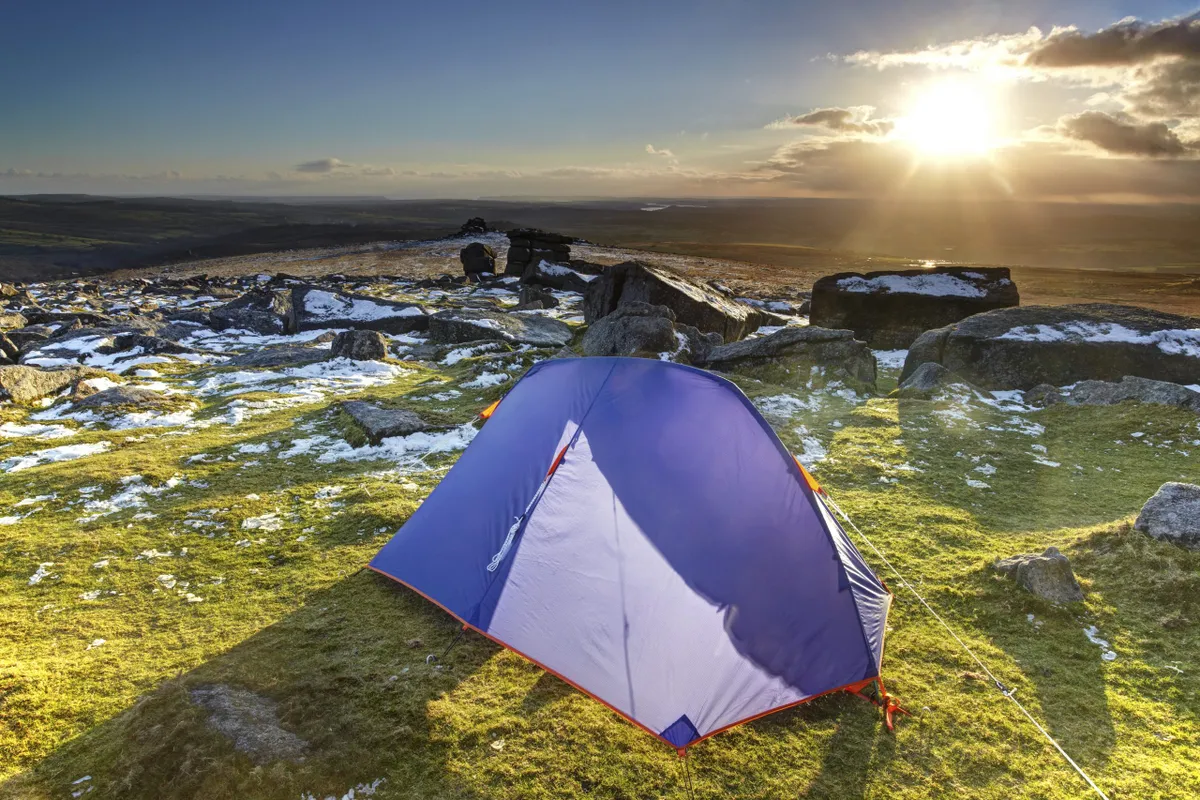
Beginner’s guide to wild camping in the UK: law, essential kit and places to camp
Where are Devon's best campsites?
For more traditional tent-life, Devon has dozens of fantastic campsites. In the north, these range from beachside favourites, such as Ocean Pitch in Croyde (oceanpitch.co.uk)– which offers surfboard hire – to the wonderfully named Under The Milky Way, near Combe Martin (underthemilkyway.co.uk), where bell tents, shepherd’s huts and a green approach make it a top option for glampers. To cherry-pick two sites in the south, meanwhile, you’ll find peaceful yurt retreats at East Portlemouth’s pretty High Nature Centre (high-nature.co.uk), where the emphasis is on eco-tourism and permaculture, and traditional farm camping at the beautifully secluded and spacious Holsome Park near Totnes (holsomeparkcamping.co.uk).
Farming in Devon
Farms and fresh food play a big role in making Devon the place that it is. The county is famed for everything from its dairy produce and hand-picked fruit (did someone say cream tea?) to its meat and seafood. Local suppliers, such as Eversfield Organic, win awards for their grass-fed meat, while Brixham Fish Market is famed across the UK. Strawberry Fields Farm Shop near Lifton, meanwhile, has evolved from a produce barrow outside a family home to recently being named ‘Best Farm Shop’ in the south-west.
Sticking with the county’s farms, Riverford Organic Farm near Totnes is one of the UK’s best-known organic food providers, and runs field-to-fork farm tours, while nearby Orchard Organic Farm not only produces top-notch apples and eggs but offers smart wooden pods, known as ‘The Hen’s Dens’, for farm-stays.
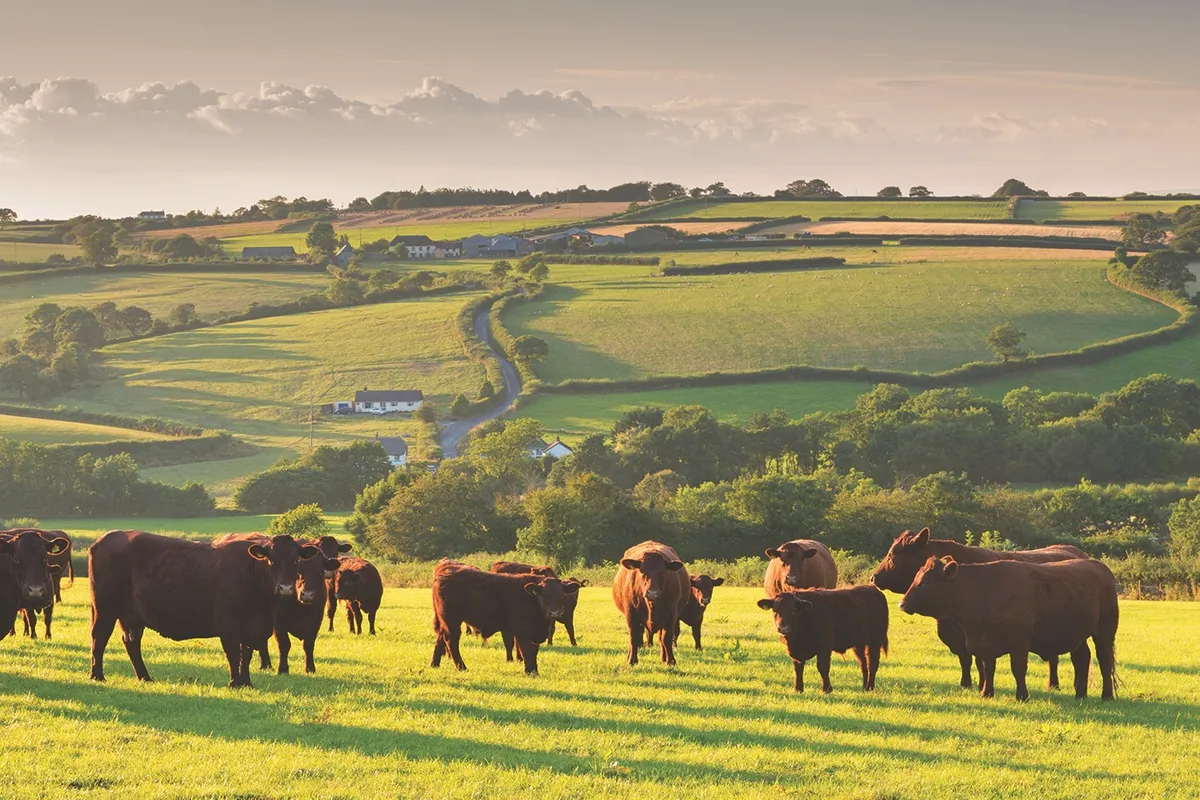
In the Blackdown Hills AONB you can pick your own raspberries, strawberries and blackcurrants at Royal Oak Farm, where further perks include a tearoom and on-site accommodation. And near Braunton, Little Comfort Farm is an organic farm-stay retreat with 28 hectares grazed by native Devon cattle and a fishing lake stocked with carp, rudd, roach and bream.
If you really want to get your hands mucky with Devon soil, the longstanding organisation WWOOF – which these days stands for Worldwide Opportunities On Organic Farms – arranges voluntary work placements at more than 35 farms, many of them in Devon, from traditional smallholdings keeping rare-breed sheep to organic farms with veg gardens and orchards.
On a related note, Knightshayes is a spectacular National Trust country house near Tiverton, with a walled kitchen garden that uses heritage seeds to specialise in Victorian-era produce, and a glorious ‘formal and woodland garden’, showcasing everything from rose beds to a towering arboretum. On the north coast, meanwhile, Clovelly Court Gardens also has a Victorian walled garden, its glasshouses producing apricots, peppers, melons and more.
Walking and cycling in Devon
Now to loosen your legs. Being one of England’s largest counties (only Cumbria, North Yorkshire and Lincolnshire are bigger), Devon offers a landscape ripe for slow exploration. Walkers can enjoy the salty-aired views from the South West Coast Path, which traces both coastlines and lends itself equally well to hour-long dog walks as it does to multi-day yomps. Dartmoor also has an array of scenic circular hikes, including some beautiful woodland trails, while the likes of Haldon Forest Park, a handsome 1,416-hectare site near Exeter, and the similarly named Halsdon Nature Reserve near Great Torrington, have superb woodland paths of their own.
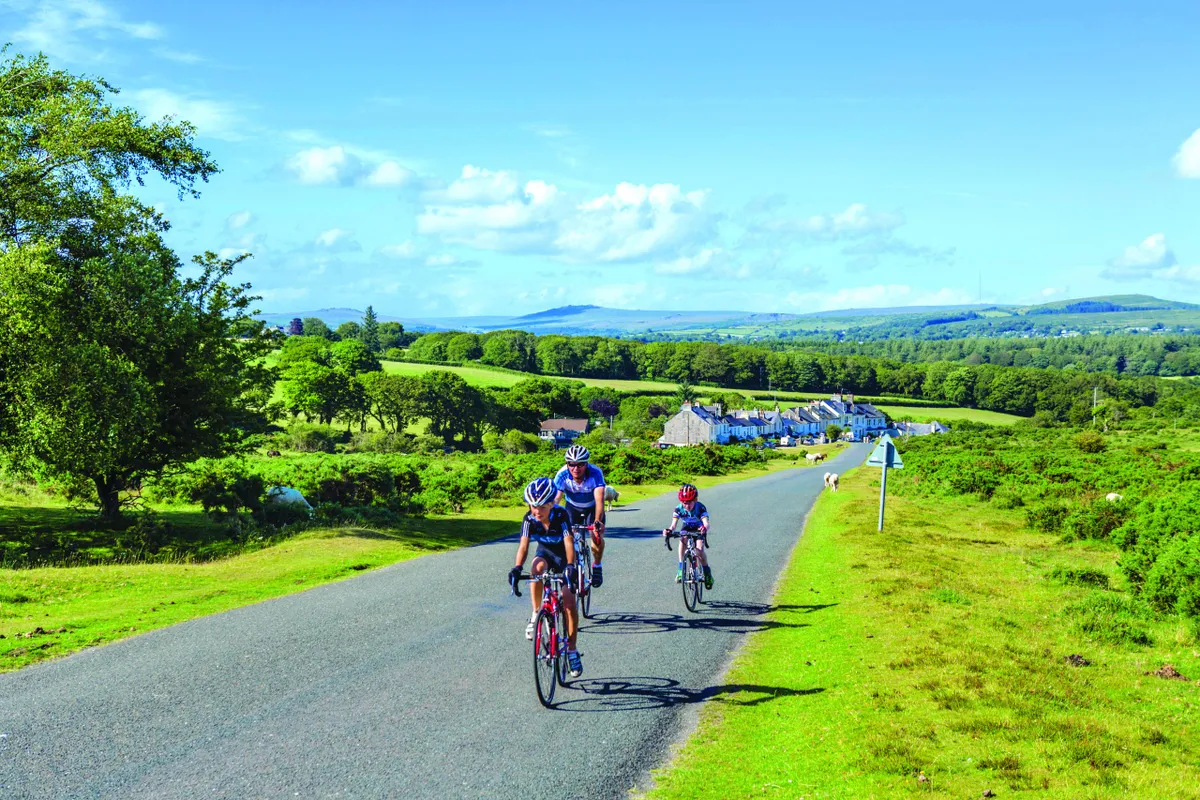
Cyclists are no less well catered for. Aside from the aforementioned Tarka Trail, some of Devon’s best rural rides include the Granite Way, an 11-mile route along a former railway line on the north-western edge of Dartmoor; the wonderful Exe Estuary Trail, which follows the water’s edge for 16.4 miles from Dawlish to Exmouth, and the more testing West Country Way, which snakes across the north of the county, eventually reaching Exmoor National Park. Exmoor – which was Europe’s first Dark Sky Reserve – might be partly in Somerset, but Devonians lay equal claim to its sweeping moorland and glittering night skies.
Discover Devon's best walks
Volunteering in Devon
You could even join a beach clean, with organisations such as the Marine Conservation Society, Surfers Against Sewage and the National Trust all organising events to keep the sands and shingle free of plastic and other litter. These usually take place in the spring or autumn. The Devon Wildlife Trust, meanwhile, also offers opportunities to volunteer your time to assist with its work. It welcomes any reports of wildlife sightings, whether you’re a beginner or an expert, to help it keep records of biodiversity.
Devon's eco town
The historical south Devon market town of Totnes is no newcomer to eco-friendliness. Long a hub of alternative thinking, it became Britain’s first Transition Town (transitionnetwork.org) in the mid-2000s, in an attempt to wean itself off a dependency on fossil fuels. Today, it remains a place apart, with a stunning location on the Dart Estuary and an admirable community mindset.
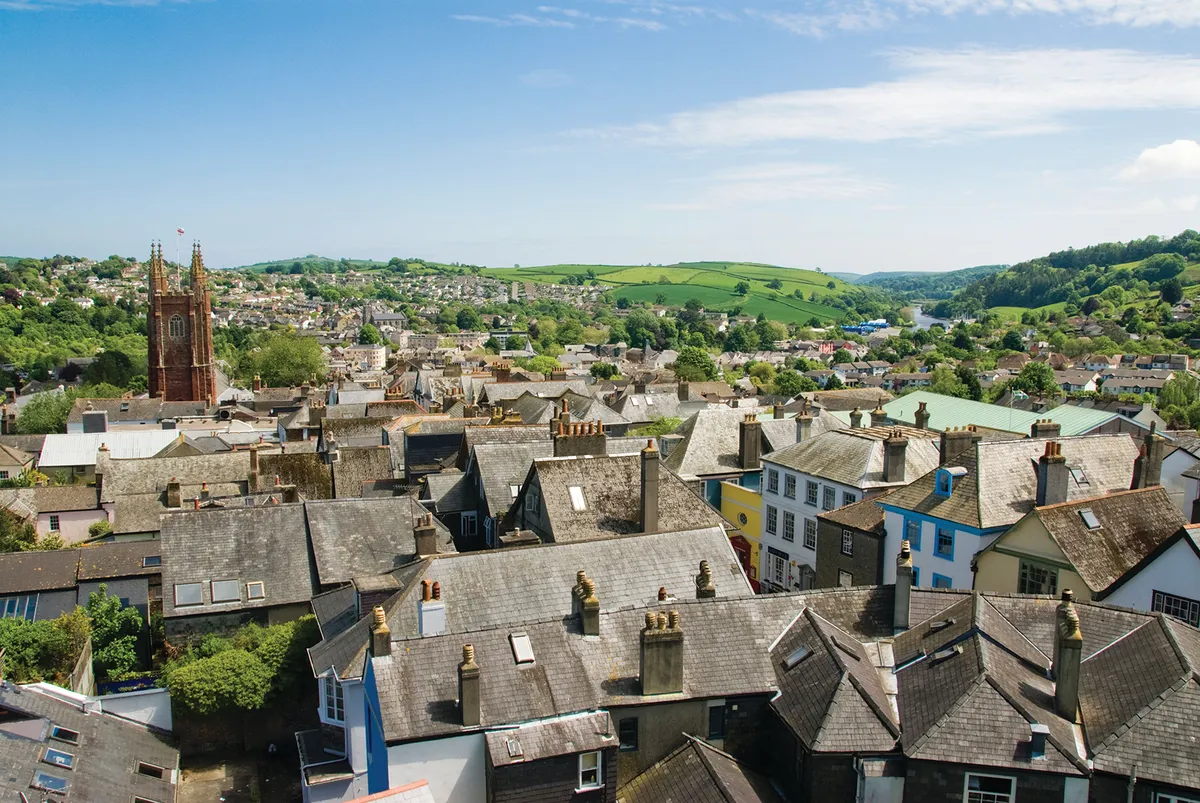
As well as rolling countryside and a Norman motte-and-bailey castle, the town and its surrounds offer lots in the way of green-minded relaxation, from meditation retreats to yoga breaks. Many of its shops place an emphasis on ethical, fair-trade goods; until the rise of the cashless economy it even had its own currency, the Totnes pound, to encourage local spending.
How to get around Devon?
By bus
For holidaymakers who want to keep their carbon footprint low but aren’t quite ready to spend their days in Lycra or hiking gear, many parts of Devon are easily reached by public transport. Rail lines stretch from Plymouth, Exeter, Paignton and Exmouth up to Barnstaple on the north coast, while bus routes spider across the entire county. Travelling in this way also allows you to save your energy for beachcombing (Barricane Beach near Woolacombe is a favourite with shell-collectors, thanks to the Gulf Stream washing up Atlantic bounty) and, of course, rock-pooling (Sandy Bay in Exmouth is a proven hit with younger visitors).
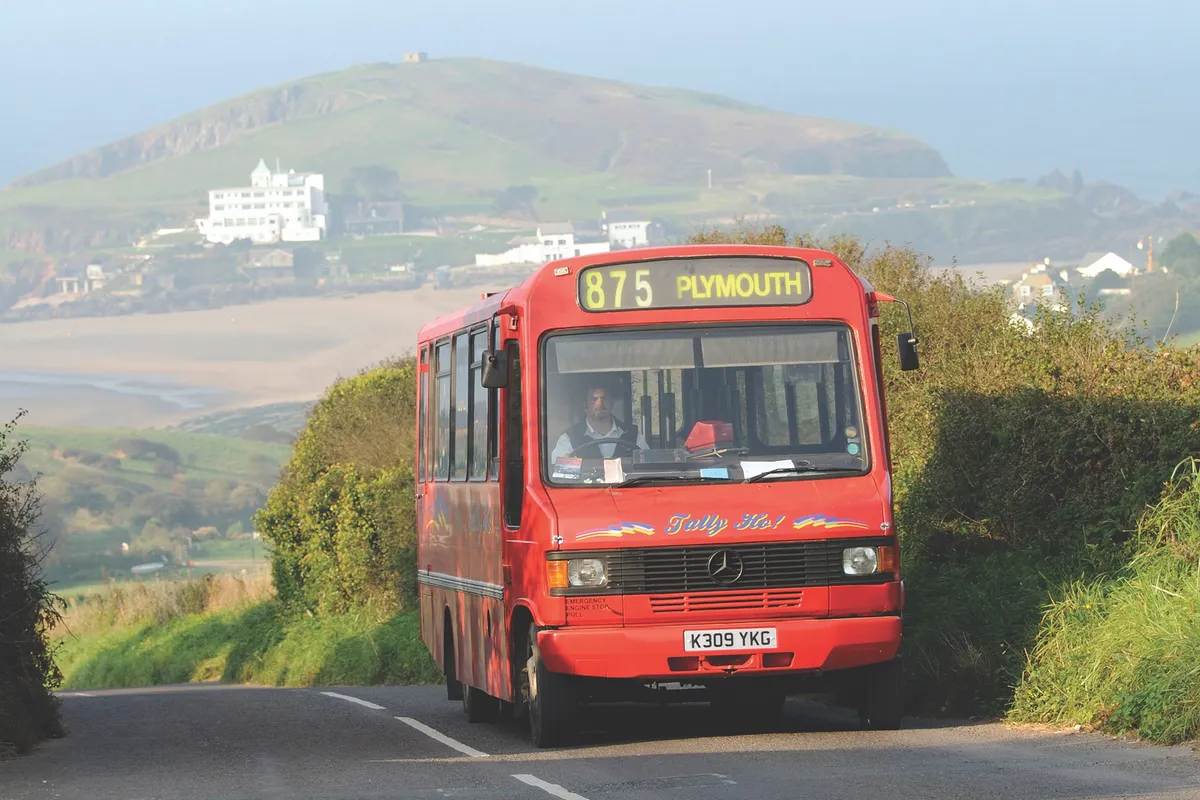
Cycle hire
For North Devon’s Tarka Trail, the reliable Tarka Trail Cycle Hire in Barnstaple has a large fleet of rental bikes, including tandems and e-bikes; tarkabikes.co.uk. For the Exe Estuary Trail in the south, Exe Trail Cycle Hire is based in Dawlish Warren and has a similarly broad range of models; exetrailcyclehire.co.uk.
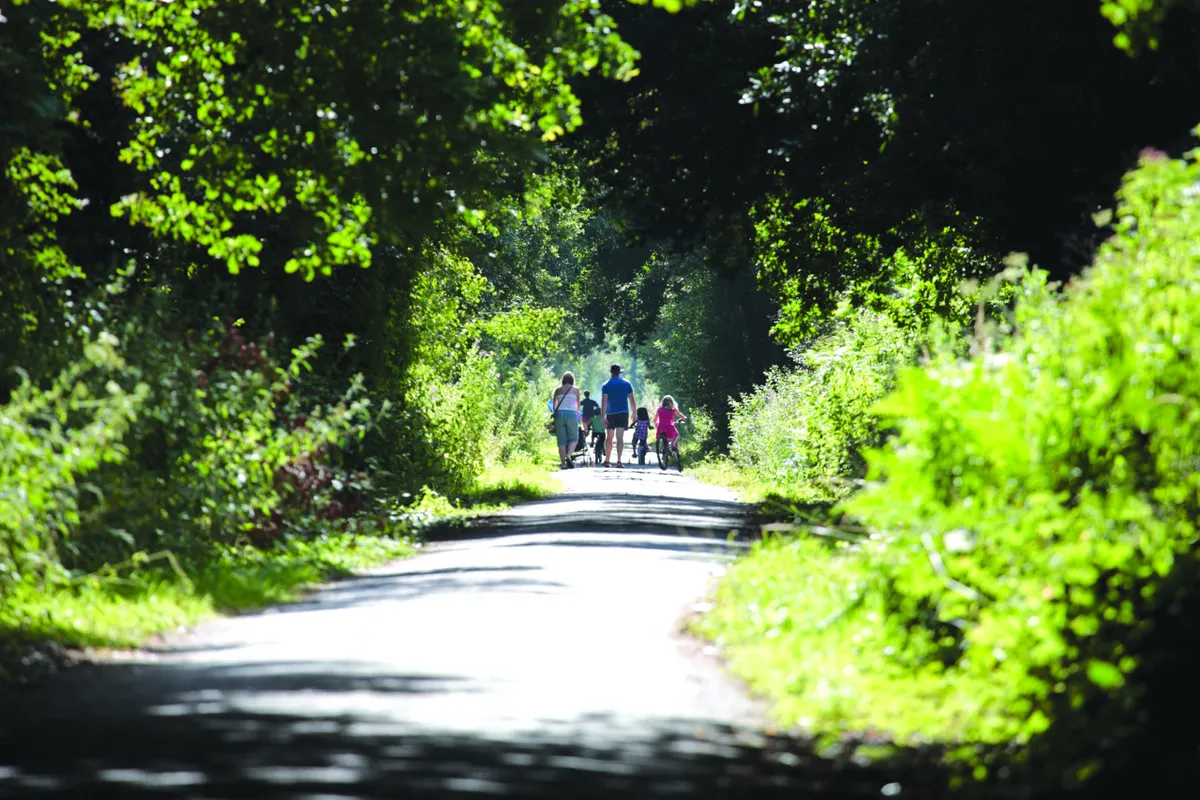
How to get to Devon
By rail
For a route map of the Devon Rail Network, visit traveldevon.info/train/devon-rail-network. The county also has a number of specialist heritage rail lines, including the South Devon Railway between Buckfastleigh and Totnes (southdevonrailway.co.uk), the Dartmouth Steam Railway between Paignton and Kingswear (dartmouthrailriver.co.uk) and the ongoing project that is the Lynton & Barnstaple Railway.
By bus
For bus maps and times, visit traveldevon.info/bus.
Places to stay
Bulworthy Project, nr Tiverton
The woodland-based Bulworthy Project has a solar-powered eco-cabin for two – and a tree is planted for every night booked. From £200 for two nights; bulworthy.uk.
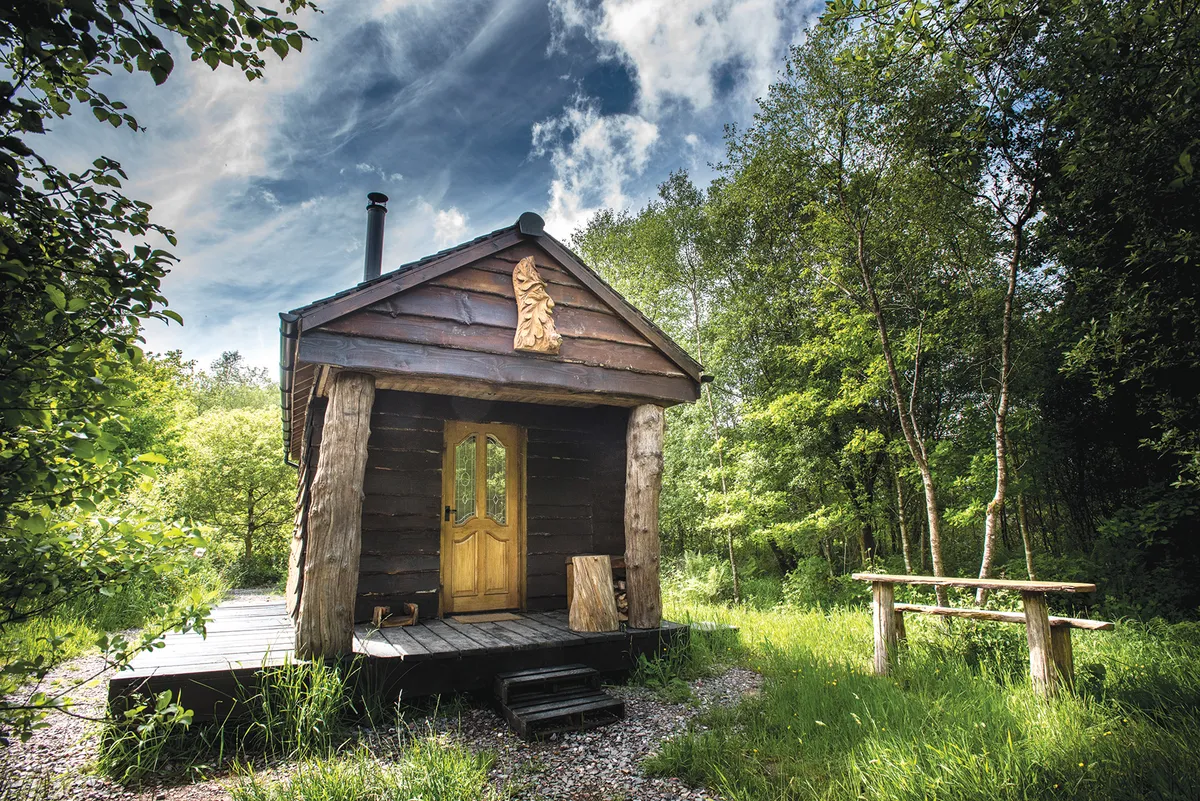
Royal Oak Farm, nr Honiton
Stay in self-contained Acorn Cottage or in the two-bed mobile home on this six-hectare farm. New this year are stargazing cabins. From £260 for a week; royaloakfarm.co.uk
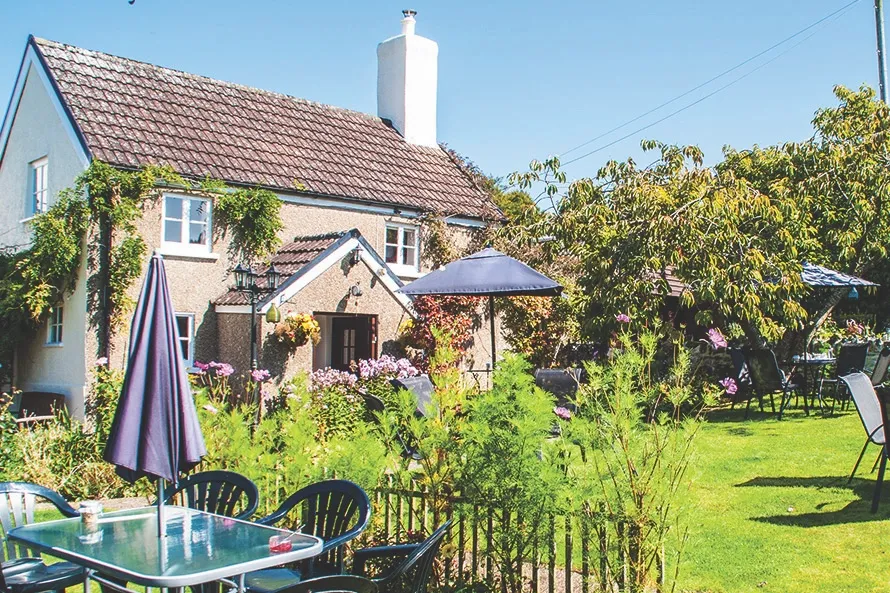
Tours and activities
Devon Sea Safari
Devon Sea Safari runs regular boat trips along the coast from Teignmouth, in South Devon. On board you might spot dolphins, porpoises or seals. devonseasafari.com
Seaton Wetlands
Seaton Wetlands in East Devon is one of the county’s 50-plus nature reserves and has five bird hides. It’s open year-round. eastdevon.gov.uk/countryside/our-reserves/seaton-wetlands
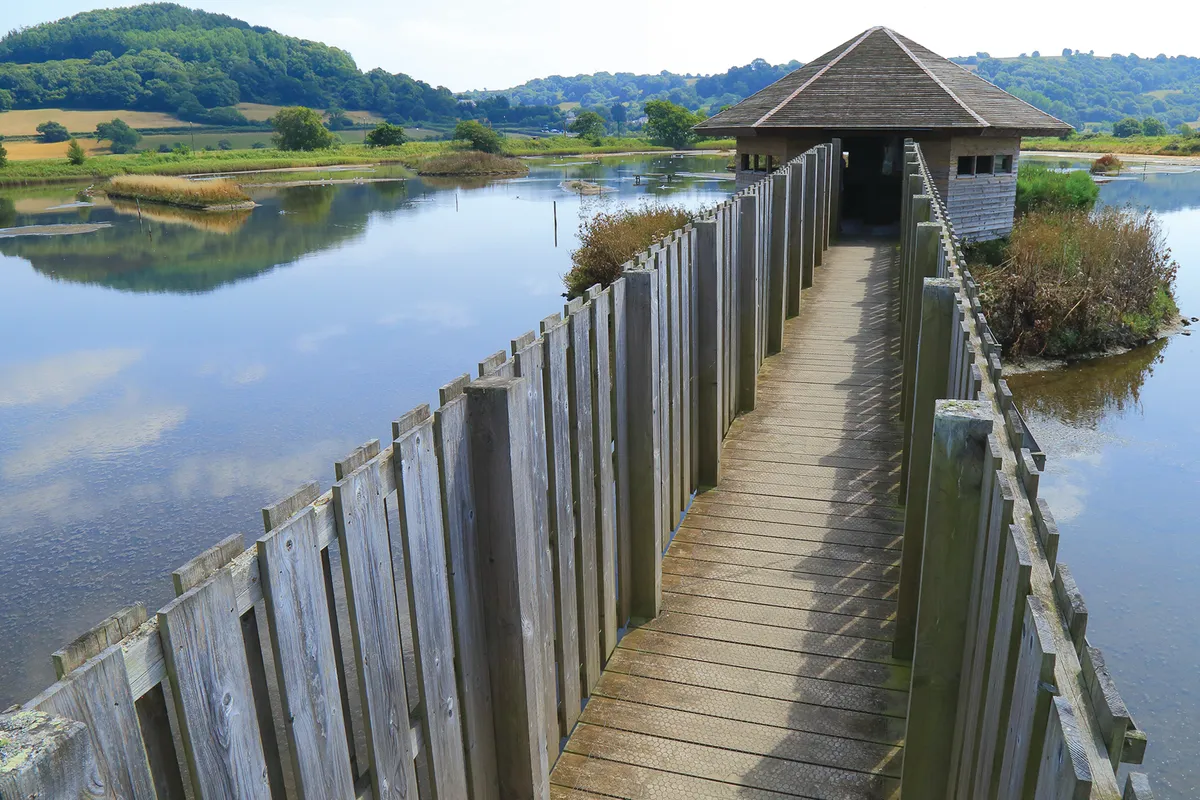
Ilfracombe Sea Safari
Ilfracombe Sea Safari in the north offers a range of wildlife-centred boat trips, including a four-hour safari around the island of Lundy. ilfracombeseasafari.co.uk
Exmoor National Park
Exmoor National Park, which has some glorious stargazing sites away from the glow of towns and cities, is holding a Dark Skies Festival on 16–31 October. exmoor-nationalpark.gov.uk
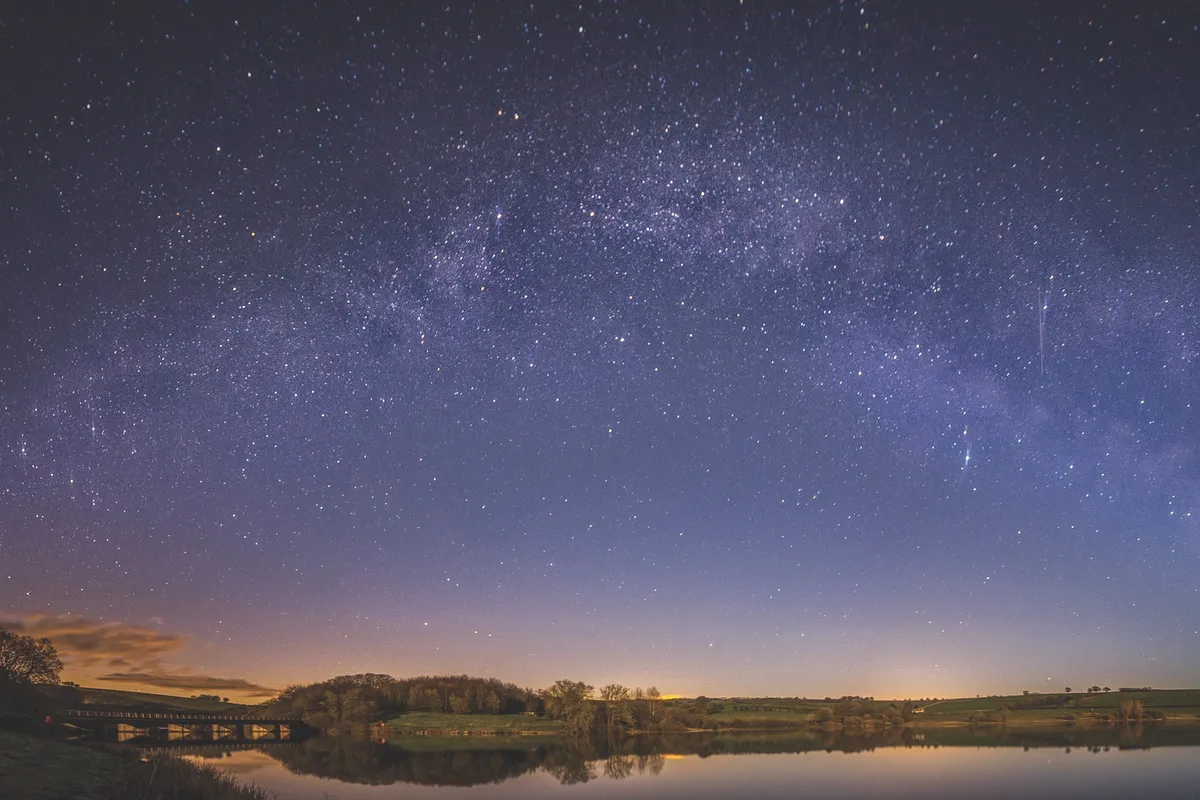
Dartmoor Nature Tours
Dartmoor Nature Tours offers wildlife walks and tours with professional local guides throughout the year. dartmoornaturetours.co.uk
Words: Ben Lerwill